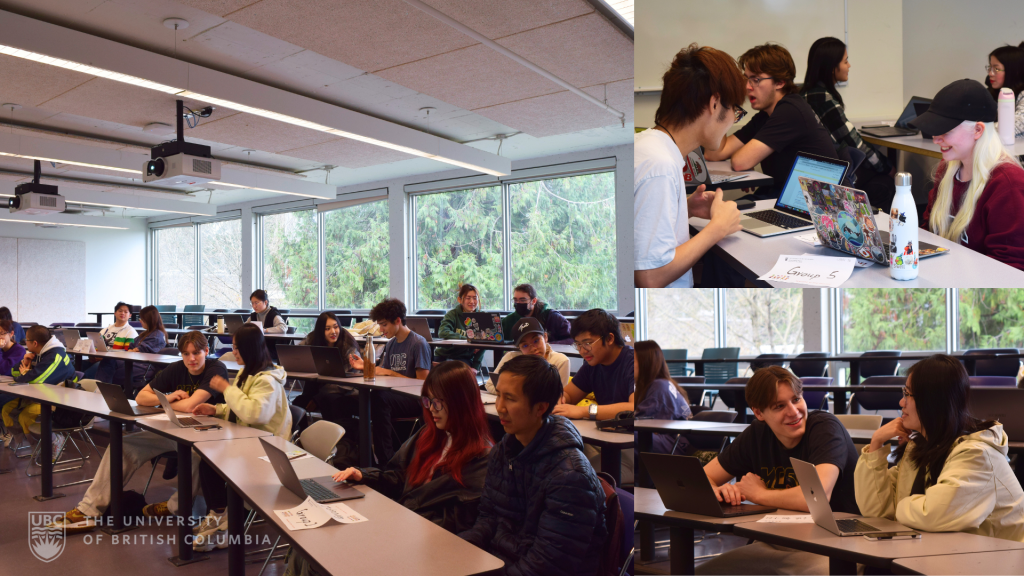

In the bustling academic landscape of the University of British Columbia, the Chinese Language Program (CLP) offers a haven of immersive learning where language transcends grammar drills and vocabulary lists. Among its transformative initiatives, the In-Person Oral Practice (OP) Project stands as a testament to the power of human connection, bringing spoken Chinese to life for hundreds of students annually. This ambitious undertaking melds the precision of classroom instruction with the spontaneity of real-world dialogue, creating a co-curricular learning environment that resonates far beyond classroom theory.
Behind the Curtain: A Visionary Framework
At the heart of the OP Project lies a meticulously orchestrated team comprising faculty, coordinators, TAs, Work-Learn students, and a robust volunteer network of language partners. “The essence of OP is its human touch,” explains Li Yang Laoshi, Lecturer in Chinese Language and the OP Management Chair. “Face-to-face interaction allows students to absorb not only words but the rhythm, tone, and emotion behind them — elements crucial for mastering Chinese.”
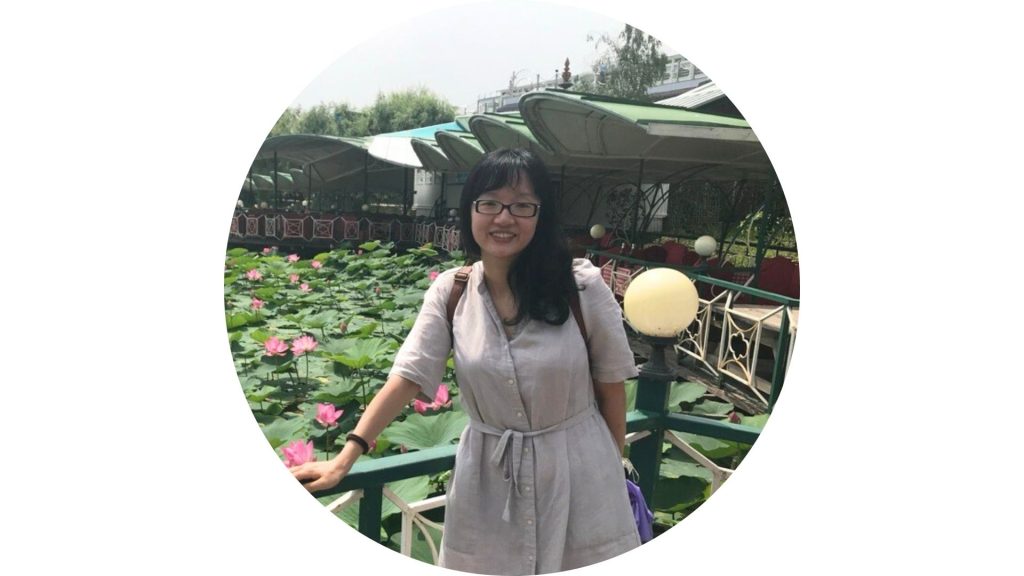

Meet Li Yang Laoshi, OP Management Chair
This vision is brought to life by the unwavering dedication of educators like Professor Qian Wang, CLP Director, and Professor Hsiang-ning Wang, CLP Coordinator, whose work anchors the initiative in academic rigor. Yanbing Chen, OP Coordinator, is currently in charge of bridging the gap between logistics and pedagogy, ensuring every session is a finely tuned interplay of learning and connection. “We focus on creating an inclusive, culturally rich environment where students feel empowered to express themselves,” says Chen.
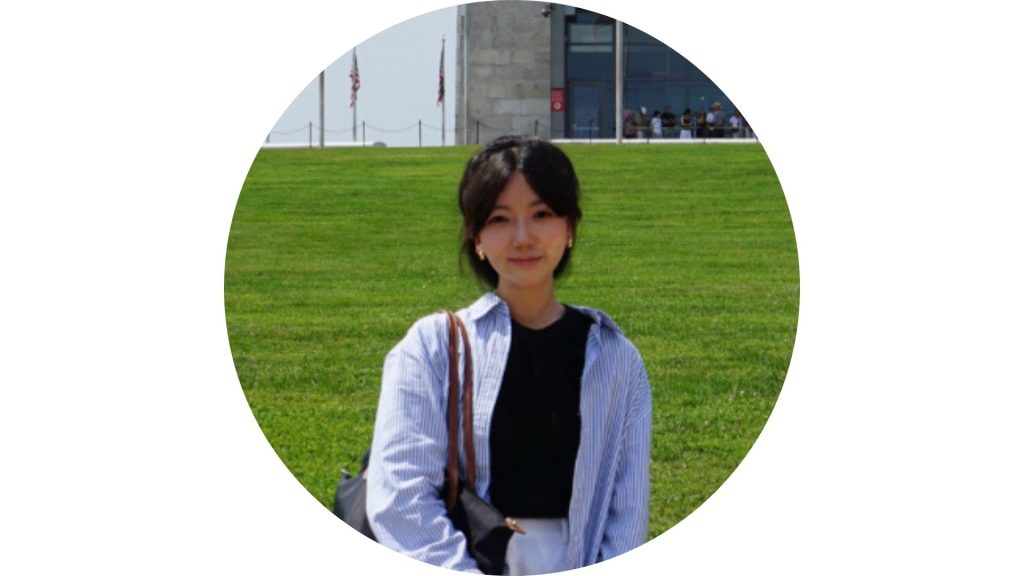

Meet Yanbing Chen, OP Coordinator
Each term, the OP sessions benefit from 30-minute pre-session trainings tailored to equip volunteers with strategies for fostering organic yet purposeful conversations. “Our volunteers aren’t just facilitators; they’re guides, helping students navigate the nuances of communication,” adds Pihua Lin Laoshi, Lecturer in Chinese Language, who underscores the role of volunteers as cultural ambassadors in this endeavor.
Behind the scenes, the OP Project runs like clockwork. Each team member, from coordinators to facilitators, contributes to its seamless execution. The OP Sheets act as the backbone, ensuring consistency across sessions while leaving room for flexibility. Faculty members align OP content with classroom instruction, ensuring that students see the relevance of their practice in their academic journey.
“Our goal is to bridge the gap between textbook learning and real-world application,” explains Chen. “The OP Project is not just a teaching tool; it’s a transformative experience.”
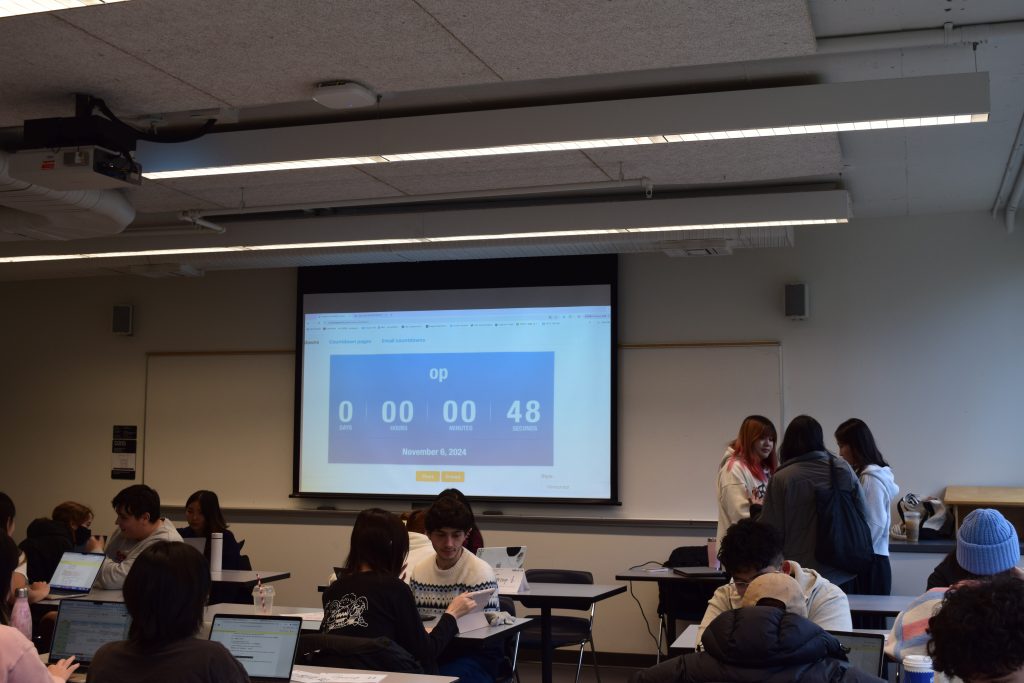

OP is in session!
In the Trenches: A Day in the Life of OP
Every OP session is a carefully constructed experience, lasting 50 minutes and spanning 10 weeks during each winter term. Sessions revolve around OP Sheets, pedagogical instruments meticulously crafted by faculty to balance structure and spontaneity. Each sheet provides students with practice prompts while volunteers receive annotated guides with suggested answers and strategies.
The conversations, though structured, thrive on the unexpected. “Awkward silences don’t exist here,” quips Chen. “Our volunteers are equipped with prompts to keep the dialogue flowing, ensuring that students always feel supported.”
Kevin Peng, an OP facilitator, reflects on the vitality of the in-person format. “Nonverbal cues, like a smile or a nod, play a significant role in Chinese communication. They add layers of meaning and help students build confidence in ways that virtual settings cannot replicate.”


Meet Kevin Peng, one of the many wonderful OP FACs
Voices from the Classroom: Transforming Ways of Learning
For students, the OP sessions are more than a requirement; they are a lifeline to authentic expression. Haley, a CHIN 131 student, shares, “I love how the in-person sessions let me laugh and connect with my practice partner. The energy is contagious, and it makes learning feel alive.”
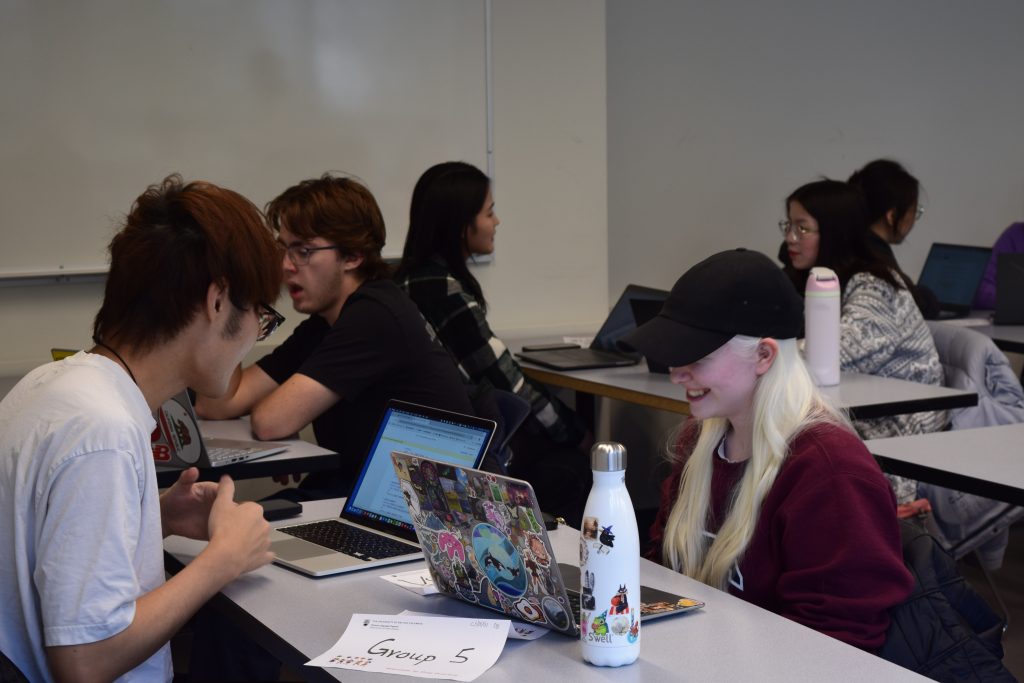

Haley engaging in lively discussion with her OP partner in the CHIN 131 classroom
Her peer Henry echoes the sentiment, emphasizing the deeper connections forged through face-to-face interaction. “Online OP feels like a transaction. In-person OP feels human. You see the expressions, hear the laughter, and feel the conversation.”
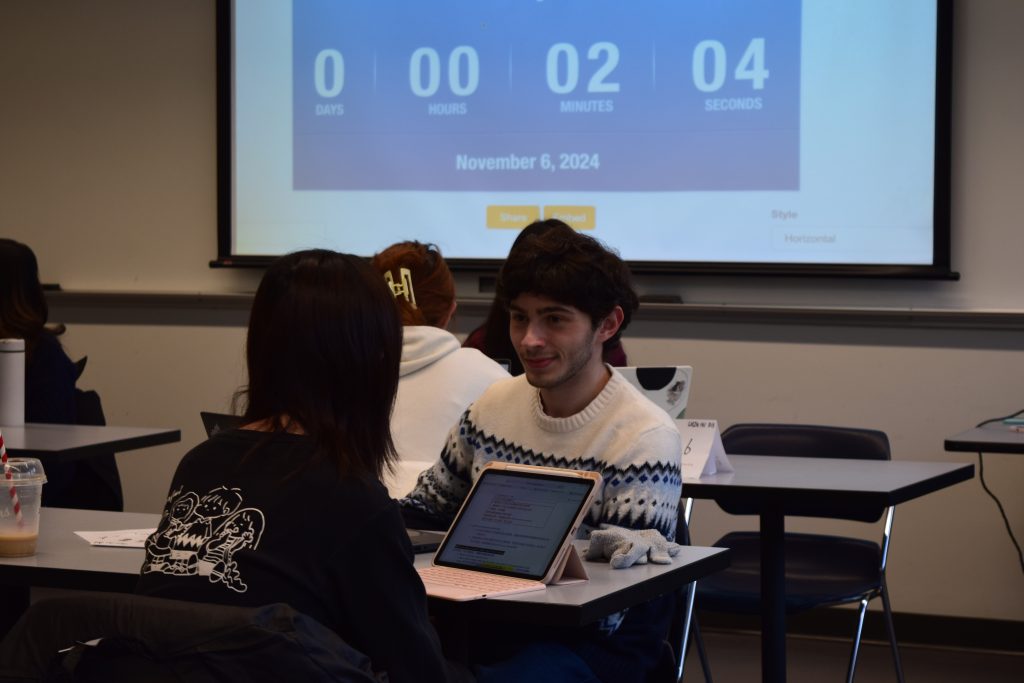

Henry engaging in conversation with his OP partner in the CHIN 131 classroom
Advanced learners like Finn and Nanjou in CHIN 331 appreciate the sense of privilege and comfort these sessions offer. “It’s a space to experiment, make mistakes, and grow,” says Nanjou. “You’re not just learning a language; you’re learning to connect.”
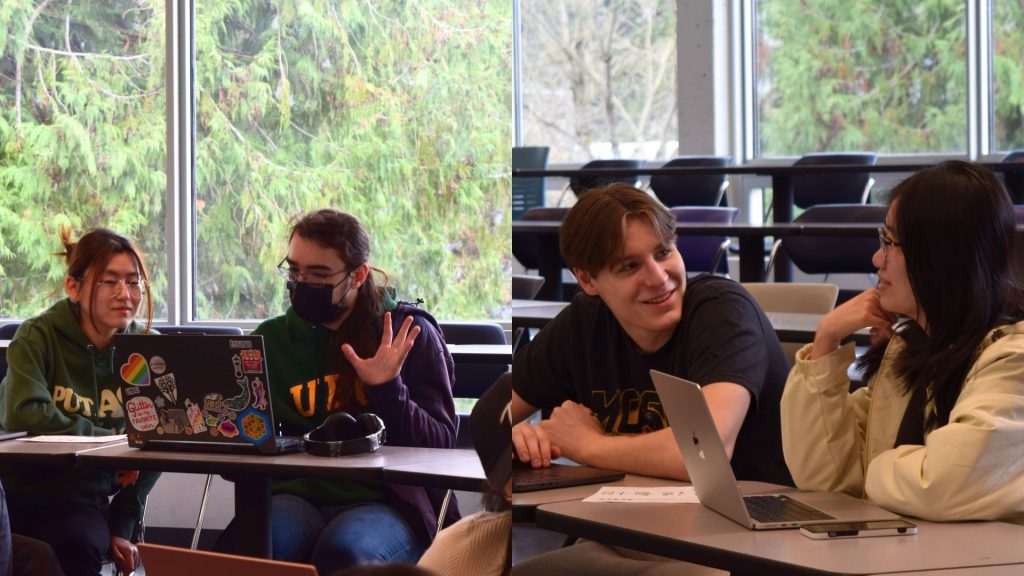

CHIN 331 Students Nanjou (2nd from left) and Finn (2nd from right) with their OP
partners
Why In-Person Matters: The Irreplaceable Element
While online sessions offer flexibility, the in-person format delivers something far more profound: authenticity. “Face-to-face interaction is irreplaceable,” states Li Yang Laoshi. “It mirrors real-life communication, teaching students not just to speak, but to connect.”
This authenticity is echoed by the students. Haley points to the spontaneous laughter, Henry to the warmth of shared stories, and Kevin to the unspoken understanding conveyed through gestures — all elements that enrich the learning experience.
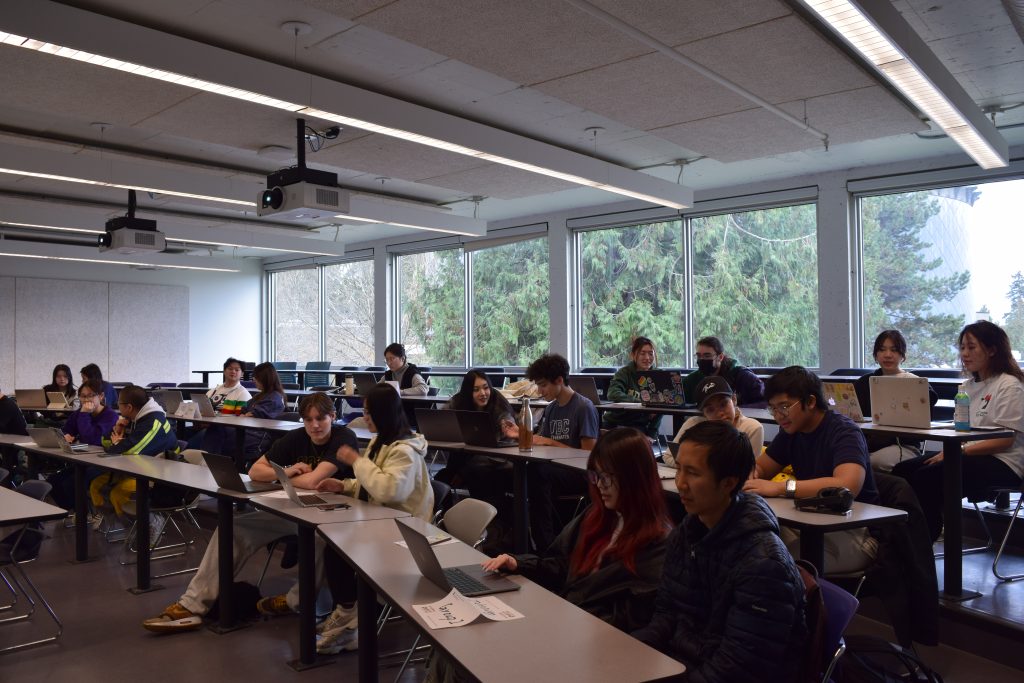

Capturing the lively discussions between OP volunteers and students of CHIN 331
The Unsung Heroes: Volunteers and Facilitators
The lifeblood of the OP Project is its army of volunteers, whose roles extend beyond mere facilitation. “Our volunteers are cultural liaisons,” says Pihua Lin Laoshi. “They don’t just correct pronunciation; they share stories, foster curiosity, and inspire students to see language as a bridge, not a barrier.”
The program’s facilitators, often TAs and Work-Learn students, play a pivotal role in ensuring the smooth operation of each session. From overseeing training to providing real-time feedback, they are the invisible hands guiding both students and volunteers. “We create an ecosystem where everyone — students, facilitators, and volunteers — benefits from the exchange,” explains Peng.
Looking Forward: A Legacy of Connection
As the CLP continues to innovate, the OP Project stands as a cornerstone of its mission to foster intercultural understanding and communicative excellence. The project is more than an academic initiative. It’s a community, a space where language becomes a shared experience, and every interaction is a step toward mutual respect and understanding.
Whether you’re a student eager to practice, a volunteer looking to give back, or a facilitator ready to inspire, the CLP invites you to be part of this remarkable journey. In the words of Pihua Lin Laoshi, “Language learning is about connection. And here, connection is our currency.”
Find out about the latest news through the CLP website, and follow us on social media @UBCChinese to discover more inspiring stories and celebrate the remarkable achievements of students within the Chinese Language Program!


